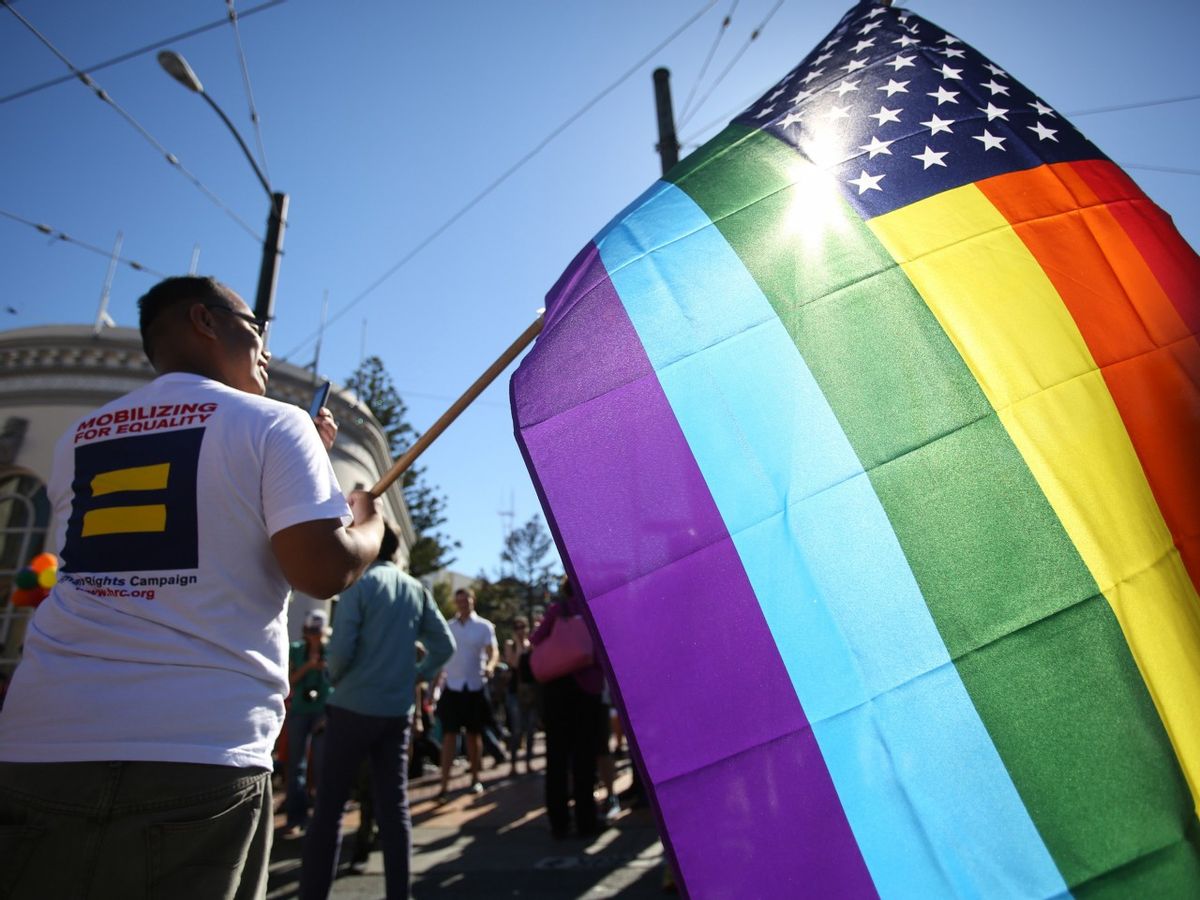Last month, the Supreme Court ruled to strike down one of the key provisions of the Defense of Marriage Act, clearing the way for married gay couples to obtain equal access to more than 1,000 federal benefits.
Accessing these benefits will be a pretty clearcut process for people living in states that recognize their marriages, but it may be more complicated for married couples who live in states that don't honor same-sex unions.
"Discrimination is messy and it takes a lot of work to clean up," David Codell, legal director of UCLA's Williams Institute, told WNYC when discussing the post-DOMA landscape.
Some of this messiness is showing up in the workplace, with the process of extending benefits to gay married couples raising "a lot of practical questions for employers," Codell adds.
As WNYC goes on to report:
The Obama administration says it wants to use a definition of marriage that includes the most people. But until new rules and regulations are written, employers won't know exactly what they'll need to do.
But while they wait for answers, they're beginning to ask questions.
"In some cases we're getting calls ... from customers and clients about what do we do," says Brent Schlosstein, founder of TrueBenefits, an employee benefits consulting firm.
"In most cases the question has to do with imputed income," he says. That's the value of things like health insurance for a same-sex spouse. While the federal government doesn't tax those benefits for married straight couples, it does if couples are of the same gender.
The Supreme Court ruling will do away with that distinction, and employers will have to adjust, says Kate Duchene of the consulting firm Resources Global Professionals. "So the first thing we'll have to do is work with our payroll department to say how have we been taxing these benefits. And we're going to have to change that treatment in our payroll system," she says.



Shares